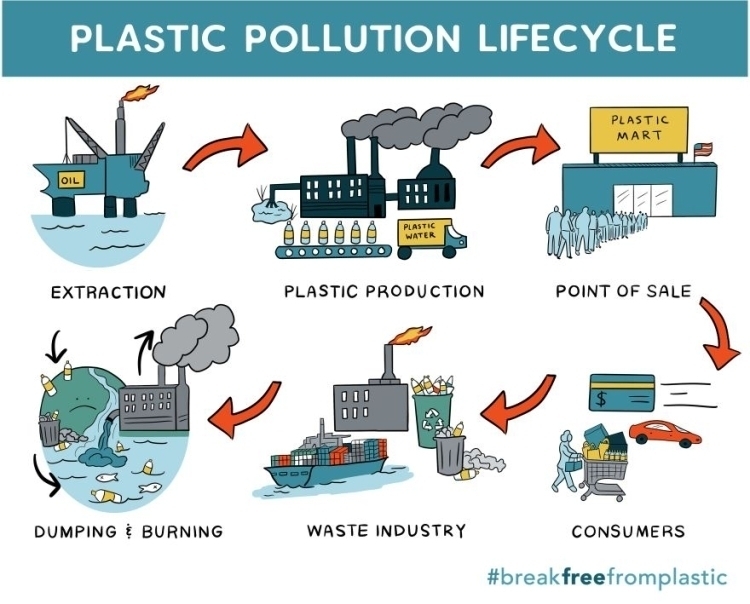“Plastic Is the New Coal”
The plastics industry is “incredibly supportive of recycling legislation over a more long-term… reduction of disposable culture.”
.
At his grilling by the Commons liaison committee earlier today, the Prime Minister was asked a couple of searching questions by the chair of the Environment Cttee, Neil Parish, MP for Honiton:
Q: Can we do more to stop British banks funding deforestation? Yes, says Johnson. He says that is what was agreed at Cop26. He says 40 institutions made a commitment. He says he would like consumers to make choices about the food they buy based on where it is coming from.
Boris Johnson gives evidence to Commons liaison committee – live | guardian.com
What is not recorded, however, is Neil Parish’s questions on our overuse of plastic – and whether there should be more focus on reducing it, rather than simply recycling it…
This is what he was saying two years ago:
And this is what he and his committee are saying now:
What Neil Parish brought up in full public view at today’s Common’s liaison committee meeting was the real impact of the plastics industry – as brought to the full fore by a recent study:
Plastic Is the New Coal, Says New Report | sierraclub.com
Plastics set to overtake coal plants on GHG emissions, new study shows | eco-business.com
Plastics Will Outpace Coal in U.S. Carbon Emissions, Study Shows | science.howstuffworks.com
Indeed, this new study makes the point very clearly – and Neil Parish was able to use a very public forum to make the same point – but it’s been information ‘hidden from view’ for some time now:
6 reasons to blame plastic pollution for climate change

- Extraction and production: Most people do not realize that plastics originate from fossil fuels. In fact, the plastic industry accounts for about 6 percent of global oil consumption and is expected to reach 20 percent by 2050. As a result, due to the energy-intensive processes required to extract and distill oil, the production of plastics generates enormous amounts of greenhouse gas (GHG) emissions.
- Consumption: Most people think that when plastic is discarded in recycling bins, it goes away. But there is no “away” – only 9 percent is recycled globally and the rest is dumped in the natural environment. In fact, South Asia is one of the largest generators of plastic waste, discarding more than 26 million tons of plastics every day. South Asia also has among the world’s highest portion of waste that is openly dumped – 75 percent.
- End of life: When not recycled or disposed of in a controlled manner, discarded plastic waste generates GHG emissions when exposed to solar radiation both in air and water. Around 18 million tons of plastics originating from South Asia are mismanaged and, consequently, are washed into the ocean, where they emit methane and ethylene due to exposure to sunlight. Polyethylene is the highest emitter of both gasses and is the most produced and discarded synthetic polymer globally.
- Recycling and Closing the Loop: Even though recycling could significantly reduce the impact of plastic pollution on the environment and its contribution to climate change, only 5 percent of total waste generated in South Asia is recycled . The AIR (Avoid, Intercept, Redesign) circular economy principles applied to cement, aluminum, steel, and plastics could reduce the combined emissions of these industries by 40 percent.
- Marine litter: A garbage truck equivalent of plastic waste is dumped in the ocean every minute. It’s more than an eyesore. Marine plastic pollution breaks down into microplastics and contributes to climate change both through direct GHG emissions and indirectly by negatively affecting ocean organisms. Plankton sequesters 30-50 percent of carbon dioxide emissions from anthropogenic activities, but after it ingests microplastics, plankton’s ability to remove carbon dioxide from the atmosphere decreases.
- Open burning: Open burning is a common waste treatment practice in South Asia and around the developing world. The amount of waste burned in India and Nepal combined accounts for 8.4 percent of waste burned globally. Burning of waste in open fires leads to the production of a serious air pollutant, black carbon and is responsible for half of the visible smog in cities like New Delhi. The global warming potential of black carbon is up to 5,000 times greater than that of carbon dioxide (CO2).
6 reasons to blame plastic pollution for climate change | blogs.worldbank.org
The industry would rather we think about recycling as a ‘solution’ to our/their problems: